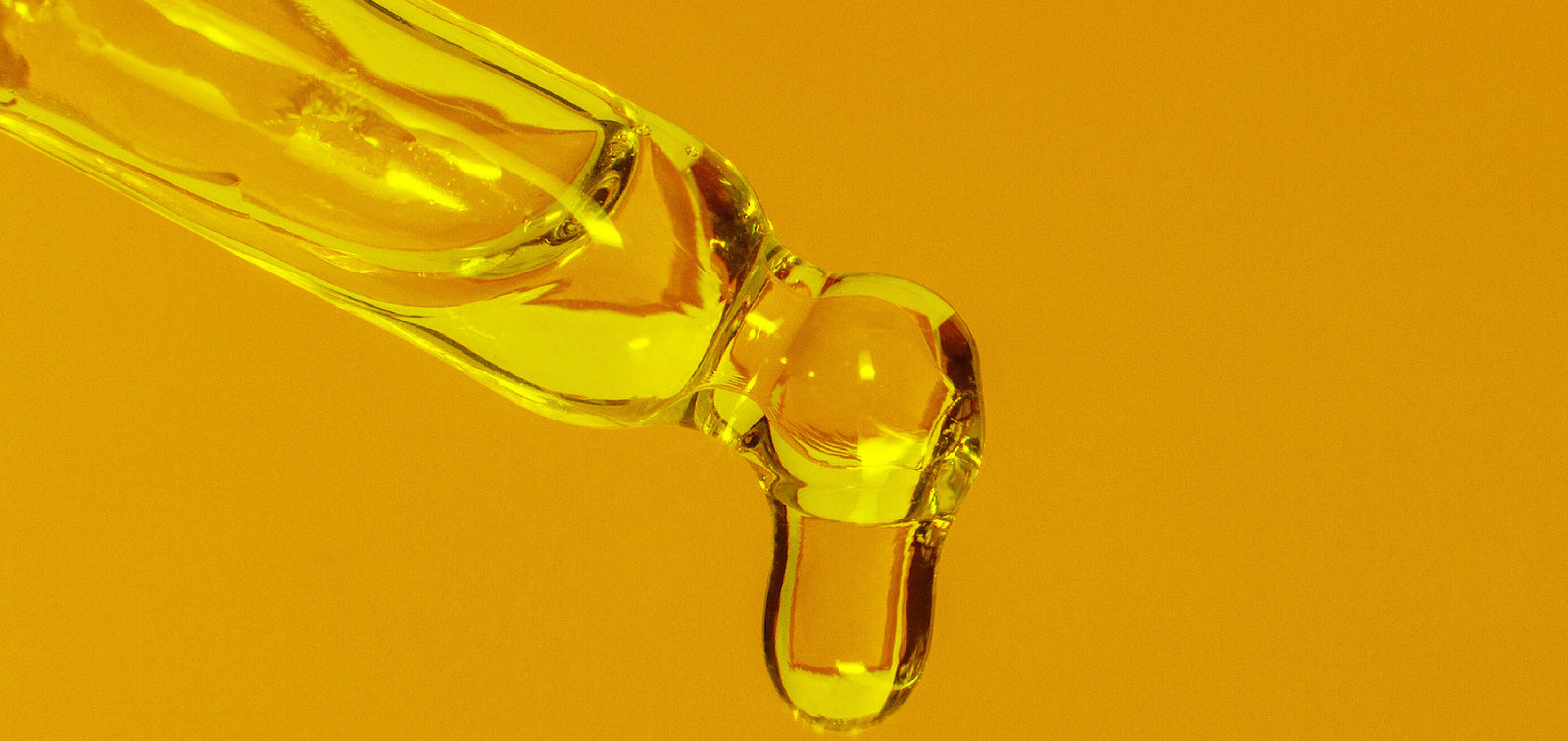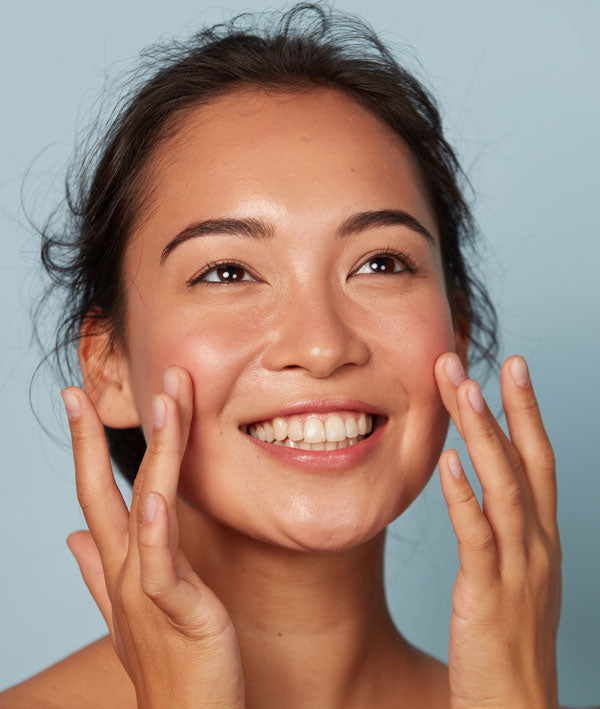The term “skin barrier” is thrown around a lot in the skincare world, but there are some misconceptions around what it actually is – and how to truly tell if it is functioning optimally. Let’s discuss what you need to know about your skin barrier, including how to tell if it is damaged (and what you can do to treat it).
What Is The Skin Barrier?
Your skin is made up of three different layers: the epidermis (the thin outer layer), the dermis (the thicker middle layer), and the subcutaneous tissue (the fatty layer underneath). When you hear the term “skin barrier,” it’s referring to the epidermis – particularly the stratum corneum, which is the upper layer of the epidermis.
The skin barrier works as a protective shield, defending the body against pollution, chemicals, UV radiation, and other environmental aggressors. It also helps maintain the skin’s natural moisture and prevent moisture loss. In short, in order for your skin to operate at its best and look and feel hydrated, smooth, and healthy, the barrier needs to be strong and intact.
Signs Of A Damaged Skin Barrier
A weak skin barrier will become more vulnerable and sensitive, changing the way the complexion looks and feels. Here are some of the top signs that you might be dealing with a damaged skin barrier:
- Dehydration and dullness
- Persistent irritation and inflammation
- Itchy, dry, and/or flaky skin
- Stinging (particularly when applying skincare products)
- Acne
- Reduced elasticity
- Hyperpigmentation
- Rosacea or eczema flare ups
- Slow wound healing
What Can Damage Your Skin Barrier?
There are a variety of different external and internal factors that can compromise barrier health. In your skincare routine, you may damage your barrier by over-exfoliating (with either physical or chemical exfoliants) and/or using retinol, benzoyl peroxide, or other stronger ingredients too frequently. Over washing your face can also affect your barrier – especially if you’re washing in hot water, or using a harsh cleanser.
Elements in your environment can also affect your barrier. This includes pollutants and allergens, as well as being in a particularly dry or humid climate. It is believed that stress and lack of sleep may also play a role in barrier health.
Unfortunately, there are also some factors that are a bit more out of our control. Some people are simply more genetically inclined to have weaker barrier health. Additionally, our skin barrier naturally gets weaker as we age.
How To Treat A Damaged Skin Barrier
If you suspect your skin barrier is damaged, here are a few specific steps you can take to restore your barrier health.
Identify the Root Cause
The most important step you need to take is recognizing exactly what is harming your skin barrier. Once you remove (or limit your exposure to) that aggressor, you can work towards healing your barrier and bringing your skin back to optimal health.
Keep it Simple
When it comes to treating a damaged skin barrier, you’re going to want to stick with a simple, restorative skincare routine featuring gentle products. This isn’t the time to try new treatments made with aggressive active ingredients, or to book a chemical peel with your esthetician. A routine featuring formulas made with hydrating, soothing, and healing ingredients is exactly what you’ll need to get your skin back on track.
Cleanse with a Mild Cleanser in Warm Water
You’re going to want to wash your face with a gentle cleanser that will effectively cleanse without stripping away the skin’s natural moisture or causing irritation. We recommend looking for soap-free and fragrance-free formulas made specifically for sensitive skin.
As you are washing, be sure to keep the water temperature warm (not hot!) to avoid further harming the barrier. At most, stick with washing your face twice a day (although some may find they can cleanse just once a day in the evening).
Skip the Exfoliants as You Heal
As mentioned, overuse of exfoliants can have a major negative impact on barrier health. Even if you don’t think exfoliants are the cause of your damaged barrier, it’s a good idea to skip both physical and chemical exfoliating formulas as you nurse your barrier back to health. They’ll likely just hinder your progress, as they won’t allow your barrier to regenerate. Once your skin is restored, you can start gradually reintroducing your exfoliant of choice into your routine.
Use Hydrating and Soothing Serums
You can still use serums in your routine as you’re treating your damaged barrier – you just have to pick the right ones. Serums targeted towards hydrating and soothing the complexion are great for supporting barrier and overall skin health without hindering the barrier-healing process.
The Hyaluronic Pure Boost Serum is perfect for those looking to treat and care for their skin barrier. It’s powered by hyaluronic acid, one of the most effective humectants in the skincare world. It works to draw water to the skin and hold it in, tackling dehydration for a plump, healthy, and comfortable complexion. The serum also has a simple and gentle fragrance-free formula that won’t aggravate weakened, sensitive skin.
Take a Gentle Approach to Acne Treatments
If you’re dealing with breakouts, you’re likely going to feel tempted to reach for the aggressive spot treatments or acne-busting serums made with ingredients like benzoyl peroxide and salicylic acid. However, these types of ingredients (especially when used in higher concentrations, which is typical for acne treatments) can do more harm than good when it comes to renewing barrier health.
Instead of using these formulas, take a more gentle approach to active blemishes. Your simple, restorative skincare routine will support your skin’s natural healing process. On a similar note, resist the temptation to pop any pimples! With a compromised skin barrier, you’ll be even more at risk of developing acne scars or post-inflammatory hyperpigmentation.
Moisturize Twice Daily
Last but not least, you need to ensure you are moisturizing both morning and night. Moisturizers are essential for maintaining skin health, and a gentle, effective formula will help balance the barrier and seal in moisture to keep the skin soft and supple. We recommend seeking out formulas made with ingredients like ceramides, shea butter, plant oils, hyaluronic acid, and glycerin.







